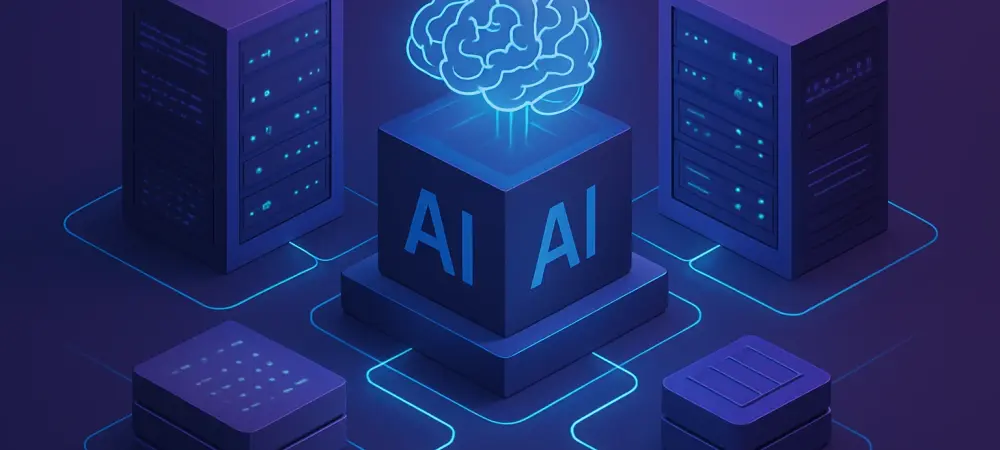What if the biggest roadblock to enterprise AI isn’t the technology itself, but the chaotic maze of tools needed to make it work at scale? Imagine a Fortune 500 company, eager to harness the power of large language models (LLMs), only to be bogged down by fragmented systems that refuse to integrate. This isn’t a hypothetical—it’s the reality for countless businesses today. Enter TensorZero, a Brooklyn-based startup that’s just secured $7.3 million in seed funding to tackle this mess head-on. With a bold vision to streamline AI infrastructure, this company is catching the eye of investors and developers alike, promising to transform how enterprises deploy cutting-edge technology.
Why TensorZero Stands Out in the AI Arena
At the heart of the AI revolution lies a glaring problem: while models like GPT-5 dazzle with capability, the infrastructure to support them in real-world business settings often falters. TensorZero isn’t just another player in the crowded AI field; it’s a potential game-changer addressing the operational headaches—known as “LLMOps”—that plague companies scaling from prototype to production. This startup’s mission to unify disjointed tools into a seamless platform could redefine efficiency for industries ranging from finance to healthcare.
The significance of this approach cannot be overstated. As AI becomes a cornerstone of business strategy, the demand for reliable, scalable solutions skyrockets. TensorZero’s recent funding round, led by FirstMark and Bessemer Venture Partners, signals strong market confidence in its ability to fill this critical gap. With enterprises spending billions annually on AI integration, a solution that cuts through the clutter isn’t just valuable—it’s essential.
Unpacking the Chaos of Enterprise AI Deployment
Enterprises diving into AI often find themselves wrestling with a fragmented ecosystem. Building LLM applications means juggling specialized tools for model gateways, monitoring, and fine-tuning, none of which are designed to work in harmony. This disarray frequently results in unreliable systems, forcing companies to rebuild entire infrastructures when moving to full-scale deployment—a costly and time-intensive process.
The stakes are high across sectors. In finance, for instance, a bank relying on AI for fraud detection cannot afford downtime or inconsistency. Similarly, healthcare providers using AI for patient data analysis need systems that are both secure and efficient. TensorZero steps into this challenging landscape with a promise to turn fragmented pieces into a cohesive, powerful engine, addressing pain points that even tech giants have struggled to solve.
How TensorZero Is Building a Smarter AI Framework
TensorZero’s strategy hinges on simplification through innovation, offering a unified, open-source platform that reimagines LLM development. Unlike the patchwork of tools businesses currently navigate, this platform integrates critical components into a single stack, eliminating the need for constant reconfiguration. It’s a practical fix for a problem that has long frustrated developers and IT teams alike.
A standout feature is the “data and learning flywheel,” a feedback loop that uses real-time production metrics and human input to refine AI models continuously. This not only enhances performance but also slashes costs—vital in an era of rising token expenses. Built in Rust, the platform boasts sub-millisecond latency even at over 10,000 queries per second, leaving Python-based competitors like LiteLLM in the dust, and proving its mettle for high-demand environments.
Early adoption tells a compelling story of impact. With over 9,700 GitHub stars and recognition as a top trending repository globally, TensorZero has captured the developer community’s attention. Major clients, including one of Europe’s largest banks using the platform to automate code changelogs, highlight its real-world relevance. These milestones underscore a technical edge paired with tangible business value.
Investor and Community Backing Fuels the Vision
Confidence in TensorZero extends beyond its tech—it’s echoed in the voices of those investing in its future. Matt Turck of FirstMark, a lead investor in the $7.3 million round, describes the startup’s components as “production-grade and enterprise-ready,” a rare feat in a market of disjointed solutions. This endorsement from seasoned industry players points to a belief in TensorZero’s capacity to deliver where others have stumbled.
Co-founder and CTO Viraj Mehta brings a unique lens to the table, leveraging experience in reinforcement learning for nuclear fusion to prioritize data efficiency in AI systems. His perspective shapes a platform that maximizes limited resources—a refreshing take in an industry often focused on sheer computational power. Meanwhile, the developer community’s fervor, reflected in thousands of GitHub contributions, reinforces the open-source model’s appeal, fostering trust and collaboration on a global scale.
Real-World Benefits for Businesses Embracing AI
For enterprises ready to scale AI initiatives, TensorZero offers a toolkit designed for impact. Its seamless scaling capability means businesses can transition from experimental projects to full production without the nightmare of infrastructure overhauls, saving both time and capital. This is a lifeline for companies under pressure to deliver results quickly in competitive markets.
Cost efficiency pairs with performance in TensorZero’s design, as the learning flywheel optimizes models to reduce token costs and power usage while maintaining speed. The open-source foundation ensures freedom from vendor lock-in, a critical advantage for industries like banking with stringent compliance demands. Looking ahead, plans for a managed service to handle complex tasks like GPU management signal a commitment to accessibility, positioning TensorZero as a long-term partner in AI-driven growth.
Reflecting on a Milestone for Enterprise Innovation
Looking back, TensorZero’s $7.3 million seed round marked a pivotal moment in the journey toward streamlined enterprise AI. It wasn’t just about the funds; it was about validating a vision to untangle the complexities of LLMOps with a unified, high-performance platform. The traction gained among developers and major clients alike spoke to a solution that resonated deeply with pressing industry needs.
As businesses reflected on this development, the path forward seemed clearer—embrace tools that prioritize scalability and transparency to stay ahead in an AI-driven landscape. Enterprises were encouraged to explore open-source platforms like TensorZero to sidestep the pitfalls of fragmented systems. The conversation shifted toward building sustainable, efficient AI infrastructure, ensuring that innovation didn’t just dazzle in theory but delivered in practice.

